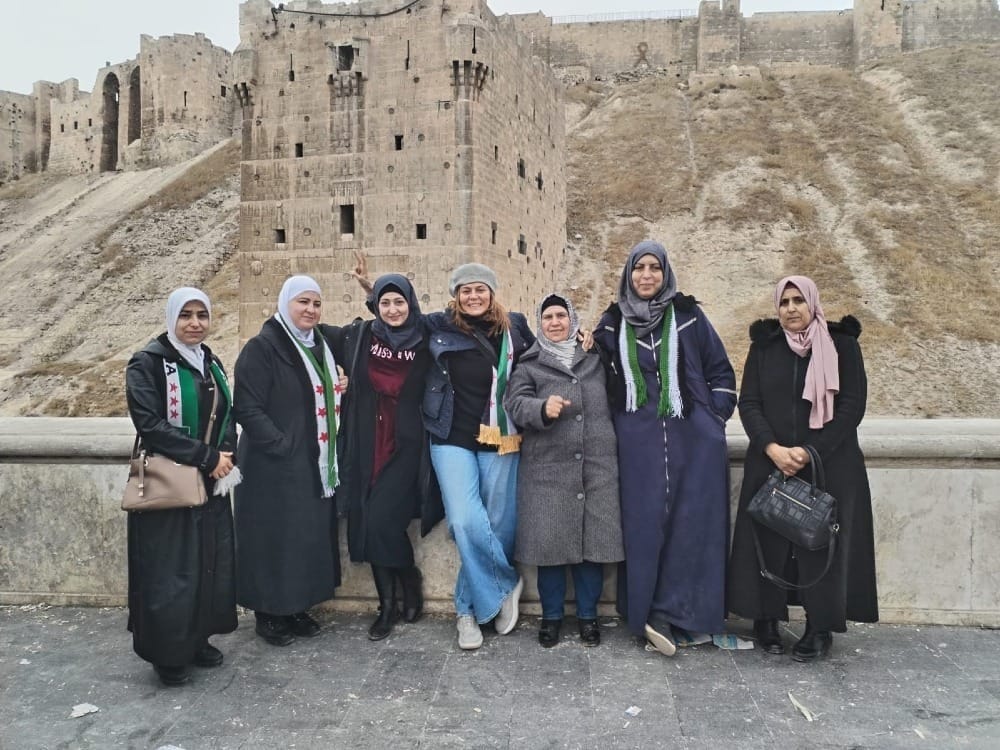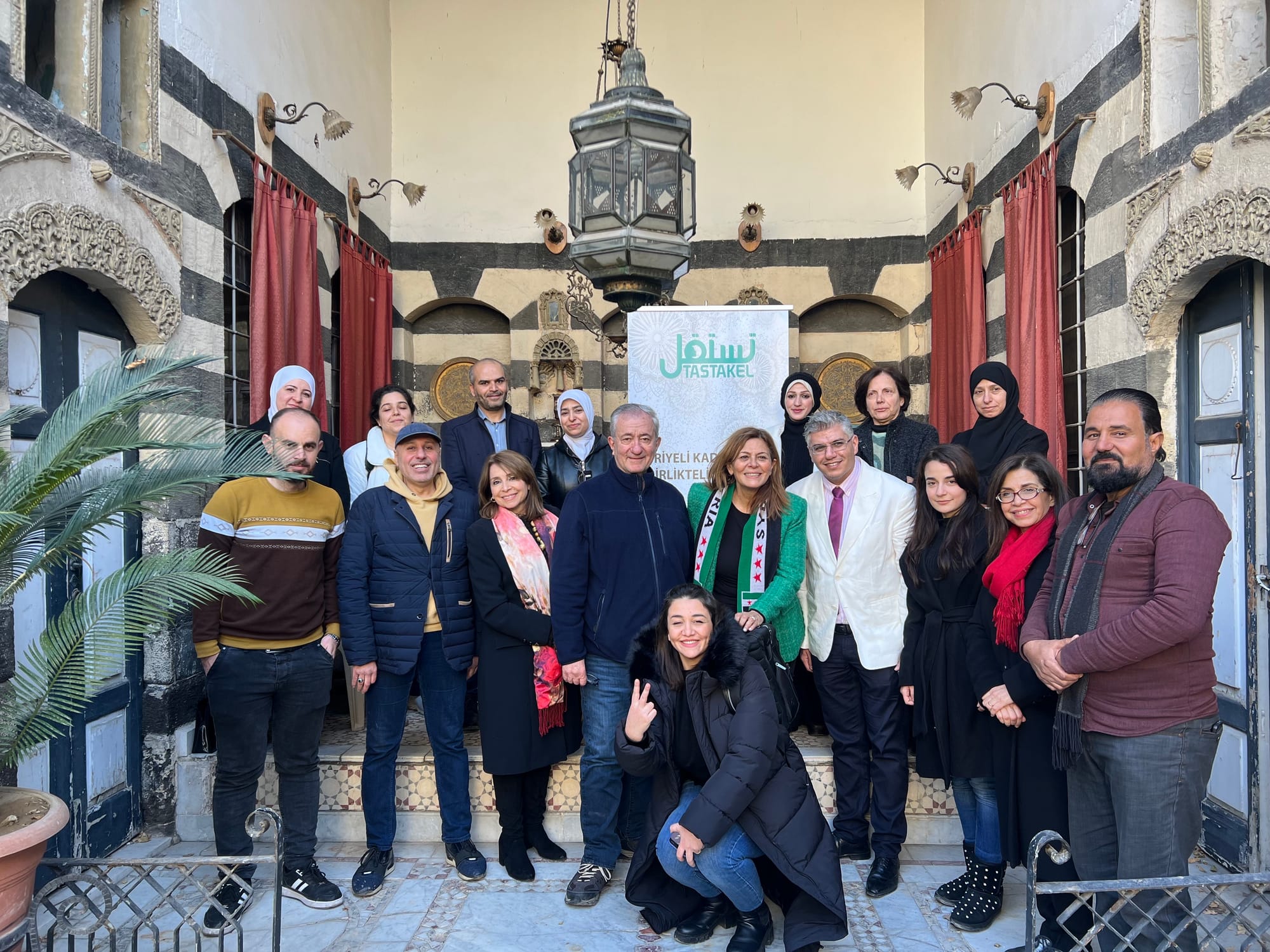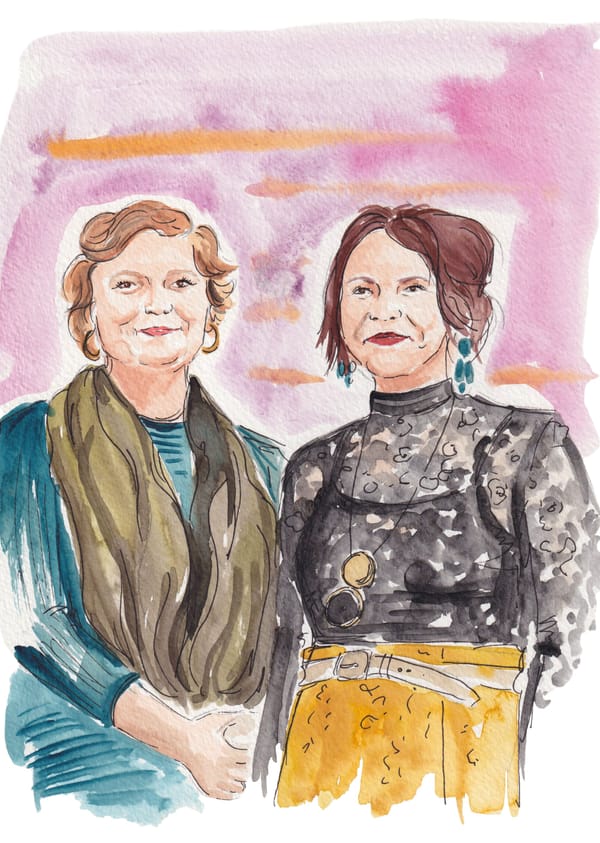Women Are Syria’s Best Hope for Lasting Peace. Will They Be Heard?
For years, Syrian women have fought to be heard in international negotiations. They aren’t about to give up ground now.

When the Assad regime fell in Syria on Dec. 8, 2024, Hind Kabawat, a Syrian activist and conflict resolution professor, didn’t miss a beat. A former student of hers who lives in northern Syria rushed to Kabawat’s home in southern Turkey, picked her up, and drove her to Aleppo, Syria’s largest city.
Kabawat traveled through abandoned checkpoints and destroyed city blocks to reunite with colleagues including a judge, civil society leaders, and the head of a camp for displaced people. Some hailed from Aleppo; some from other parts of Syria. Some had stayed put during the war, others, like Kabawat, were returning home from exile for the first time since the war started in 2011.
The Syrian civil war began after Syrians organized pro-democracy protests. President Assad cracked down on protestors mercilessly, and as he did, the Free Syria Army and other rebel groups formed to challenge him. Assad bombed huge swaths of the country in an attempt to quash the uprising, using barrel bombs and sarin gas against his people and ultimately driving over 12 million Syrians from their homes.
For years, Kabawat has been focused on promoting democracy and gender equity through interfaith and interethnic dialogue. She is a Christian from Damascus, where she used to host salons, bringing together journalists, artists, academics as well as people from diverse backgrounds and political affiliations. In 2015, she founded Tastakel, a women-led nonprofit focused on rebuilding a democratic society in Syria.

Then in 2017, Kabawat co-founded the Syrian Women’s Political Movement (SWPM), a group that advocates for women’s participation in all aspects of decision-making. The organization has since grown to over 200 Syrian members who have been living in at least 21 countries.
The SWPM is a powerful force in almost every opposition political and civil society organization working for freedom and justice in Syria. Over the past seven years, its members have documented human rights abuses, advanced refugee camps and humanitarian aid efforts, negotiated ceasefires and detainee releases, and supported communities and children.
With Assad’s departure and a caretaker government in place, members of SWPM are rallying urgently. They have deep concerns about the new government’s commitment to human rights and women’s participation. Their advocacy is particularly important given the threat of foreign influence in Syria from Turkey as well as past and recent human rights abuses against Syrian Kurds. In short, their voices simply must be heard.
Kabawat has been preparing for this moment.





